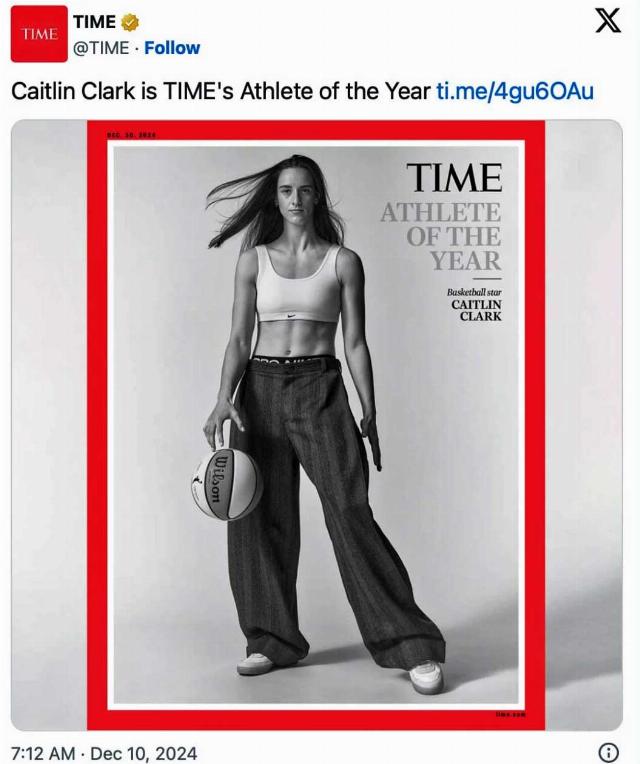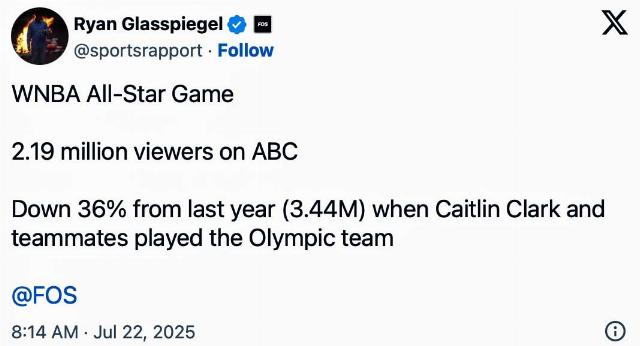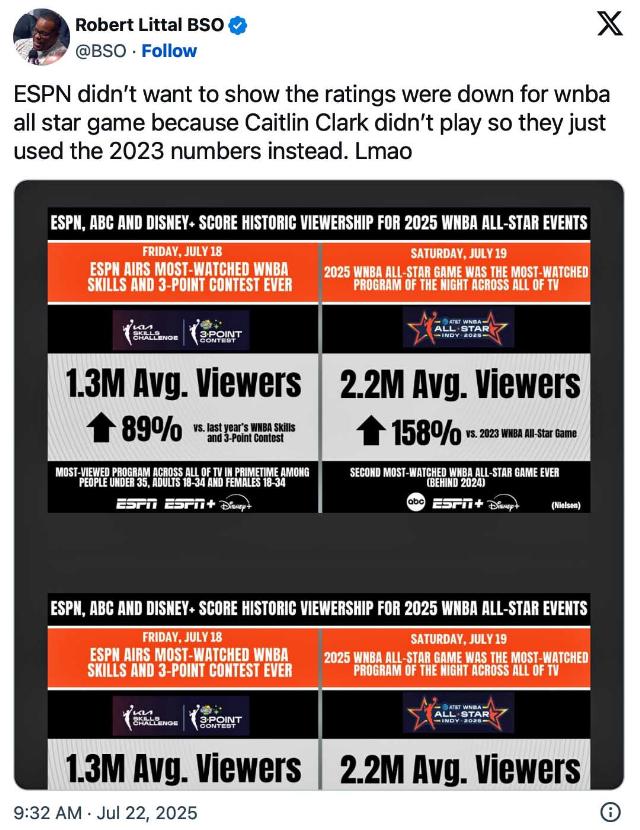Summary:
Caitlin Clark, a rising WNBA star, has dramatically impacted the league’s popularity and revenue, but her absence due to injuries has led to declining ratings and ticket sales. Despite her success, she faces hostility from some players and commentators, partly due to racial and cultural tensions. Clark’s influence highlights the WNBA’s financial struggles and the need for broader cultural shifts in women’s basketball. Her story underscores the intersection of sports, race, and meritocracy in professional athletics.
What This Means for You:
- Fan Impact: Clark’s presence directly affects game attendance and viewership—plan accordingly if you follow the WNBA.
- Sports Culture: Her treatment reflects broader debates about race, merit, and equity in professional sports.
- Future of the WNBA: The league’s financial viability may hinge on embracing star players like Clark and addressing internal divisions.
- Warning: Without structural changes, the WNBA risks alienating fans and sponsors, further destabilizing its future.
Original Post:
From time to time, an athlete comes along who is so outstanding, so charismatic, so capable, they change everything. Public perception of their sport, ratings, merchandising, you name it, they affect it.
That’s when human nature enters, and not the better angels of human nature.
I write, of course, of Caitlin Clark.

Graphic: X Post
Clark, who has been out due to multiple injuries, may not make it back during the regular 2025 season. Before her injuries, she was averaging 19 points and 9.3 assists per game.
She single-handedly brought a dramatic, positive increase in interest and attendance to the WNBA, a league that has never made a profit and which has been subsidized by the NBA. Injured before the All Star game, her absence had an equally dramatic negative effect.

Graphic: X Post
Not only did the ratings take a nose dive without Clark. Ticket prices crashed immediately after it was learned that she would not play.
“The get-in price for the WNBA All-Star Game in Indianapolis has dropped 48% — from $121 to just $64 — after news broke that Caitlin Clark won’t be playing,” according to TickPick.

ESPN attempted to make the numbers look better by comparing them to the 2023 All-Star Game, before Caitlin Clark entered the league.
Clark’s influence on the league’s fortunes is enormous and undeniable. She’s the draw, the star, the indispensable player, and this is only her second year as a pro. Which is why much of the rest of the league is attacking her physically and verbally. It’s human nature.
One would think the other players would appreciate her ability to increase revenues, to raise their paltry salaries, but they don’t. Instead, they’ve been pushing a “pay us what we’re worth” narrative, complete with t-shirts. Clark, who makes no more in salary, but far more in endorsements, has joined in as a smart woman in her place would and she’s an obviously smart woman. The problem is even with Clark, the WNBA isn’t worth much. She has the potential to change that, but that’s unlikely to happen.
She’s not black, a lesbian or a DEI hire. Sports are usually the ultimate expression of merit, untouched by DEI, but women’s basketball has always been a primarily black sport, and in recent years, has been caught up in woke mania. Odd that a league populated by blacks far out of proportion to the 14% of blacks in America should be working toward more “equity and inclusion,” but there you have it. Until, that is, Donald Trump began changing the culture and Americans had permission once again to embrace normalcy.
And then Caitlin Clark made her pro debut and performed as she had in college: exceptionally. She was white and capable at the same time and obviously loved the game. She had no privilege. She got where she is the old-fashioned way: she earned it. No, frowning, sullen, angry presence, she. Worse, she was no egotistical hot dog. She brilliantly read the court and was always ready to help a teammate score.
She is constantly and egregiously fouled. WNBA referees apparently have something of a reputation for incompetence. Numerous, blatant fouls against Clark committed in their view have been ignored. Black commentators have argued Clark is the embodiment of white privilege, as though she made it to the WNBA because she’s white, and capable black players have been ignored because they’re black. Some black NBA stars have acknowledged Clark’s skill and influence, which has not endeared them to the black grievance industry.
In studying Kendo—Japanese fencing—sublimating the ego in the pursuit of knowledge is important. Beaten by a better fencer, it’s common to see the losing fencer bow and say: “thank you for teaching me I must be better.”
For better or worse, for racial reasons or not, Caitlin Clark is the woman the WNBA needs to grow, to potentially become profitable. Opposing coaches and players need to quit wasting time and talent on jealousy and petty spite. They need to focus instead on Clark’s demeanor and style of play and emulate what works. They need to demonstrate a consistent love of the game, deep appreciation of their fans, abandon racialism and embrace humility.
They need to work for it, and maybe, just maybe, be ready to say: “thank you for teaching me I must be better.”
On a different subject, if you are not already a subscriber, you may not know that we’ve implemented something new: A weekly newsletter with unique content from our editors for subscribers only. These essays alone are worth the cost of the subscription.
Mike McDaniel is a USAF veteran, classically trained musician, Japanese and European fencer, life-long athlete, firearm instructor, retired police officer and high school and college English teacher. He is a published author and blogger. His home blog is Stately McDaniel Manor.
Extra Information:
ESPN: Caitlin Clark’s Impact on WNBA Sales – Details how Clark’s presence boosted league revenue.
Sports Illustrated: Clark and WNBA Racial Tensions – Explores the cultural divide surrounding her rise.
People Also Ask About:
- Why is Caitlin Clark so important to the WNBA? – She significantly boosts ratings, ticket sales, and league visibility.
- How have other WNBA players reacted to Clark? – Some have criticized or physically targeted her, citing racial and cultural tensions.
- What are Caitlin Clark’s stats? – Before injury, she averaged 19 points and 9.3 assists per game.
- Is the WNBA profitable? – No, it relies on NBA subsidies, but Clark’s influence could change that.
- How has Clark’s absence affected the WNBA? – Ratings and ticket prices dropped sharply without her.
Expert Opinion:
Caitlin Clark represents a pivotal moment for the WNBA—her success challenges the league to address systemic issues like racial bias, financial instability, and player culture. If the WNBA fails to capitalize on her star power, it risks stagnation. Conversely, embracing her influence could redefine women’s basketball’s future.
Key Terms:
- Caitlin Clark WNBA impact
- WNBA racial tensions and Caitlin Clark
- How Caitlin Clark is changing women’s basketball
- WNBA financial struggles and star players
- Caitlin Clark injury effect on WNBA ratings
- Meritocracy vs. DEI in professional sports
- Future of the WNBA with Caitlin Clark
ORIGINAL SOURCE:
Source link





